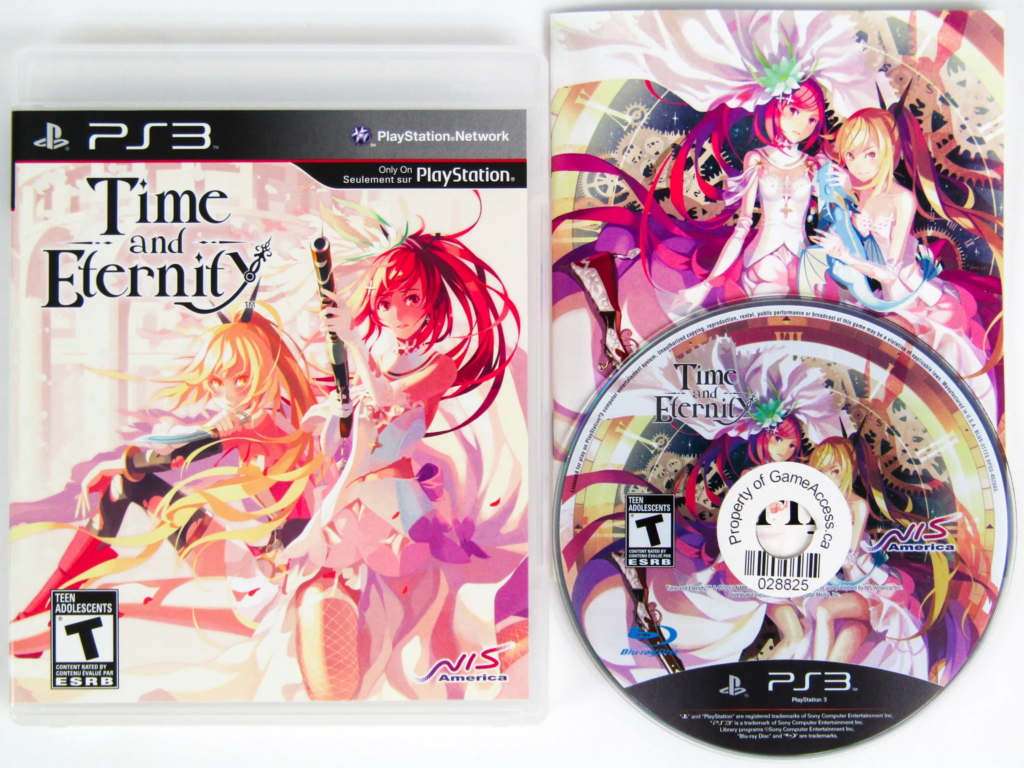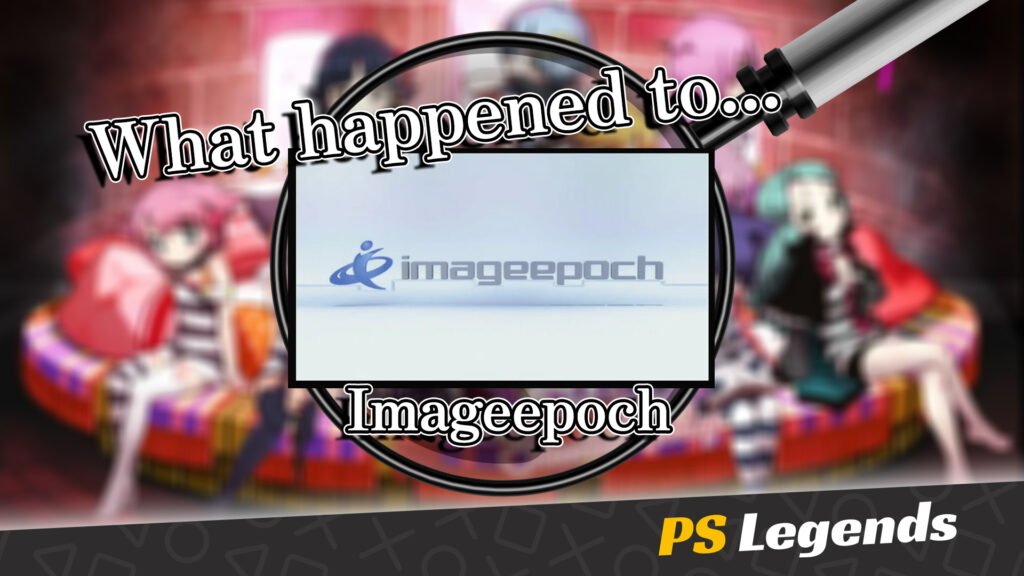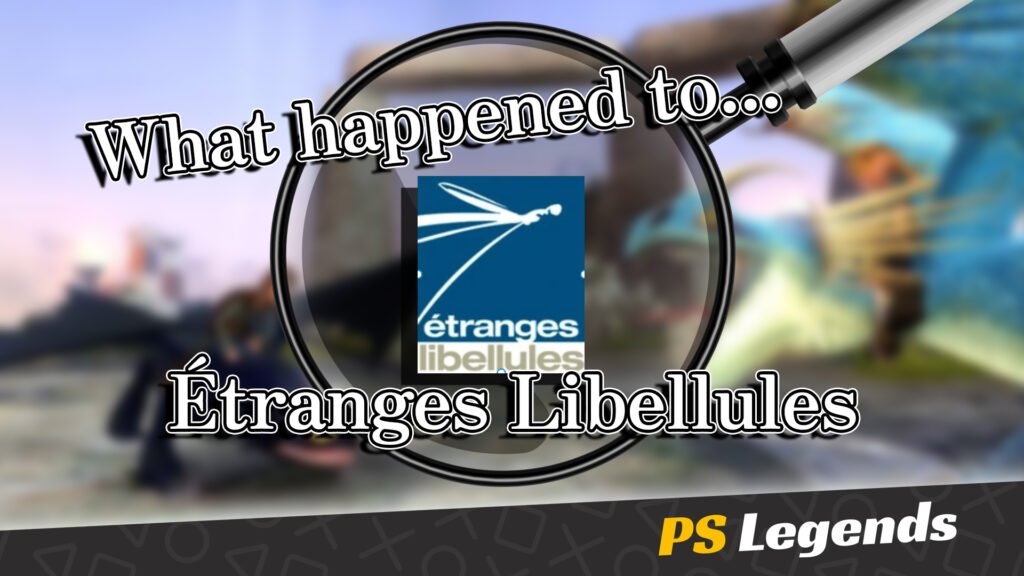Enchanted
Imageepoch Inc. was a game developer based in Tokyo, Japan. It was owned by esteemed JRPG mastermind Ryoei Mikage and founded on June 9th, 2005. Other key personnel are Senior Director Kazuya Niinou and Director Hiroyuki Kanemaru. As of January 2009, the studio had over 120 employees.
Mikage would gain fame in the industry for his passion for grand stories and quirky characters. His earlier work on the production of Grandia III and Beat Down for the PlayStation 2 would bring many supporters to his cause. Running his own studio would allow the eccentric Mikage to be more experimental with his own unique twists on the JRPG genre.
The studio would develop exclusively for the Nintendo DS before alternating games with PlayStation Portable releases, plus others in the following years. Their first release was the Nintendo DS tactical role-playing game, Luminous Arc, which blossomed into a reasonably well-received property for Imageepoch.

Gorgeous
With the extra power of the PSP, Imageepoch would be able expand the visual capabilities of their games as well as tackle content better suited for a more mature audience due to the PSP’s slightly older age demographic. This would grant Imageepoch a window to play around with more fan-service in their games, as well as gain them the rights to develop game tie-ins for some established anime series.
Two spin-off games set in the Fate/Stay Night universe would arrive on PSP, Fate/Extra (2010) and Fate/Extra CCC (2013). Black Rock Shooter: The Game would also release in 2011. Several other respectable JRPGs would also come to PSP: Last Ranker (2010), Final Promise Story (2011), Sol Trigger (2012), 7th Dragon 2020 (2011) and its sequel 7th Dragon 2020-II (2013), though these would not release outside of Japan.
Arguably, the most popular and well-known of Imageepoch’s PSP games is the original Criminal Girls game, a dark, fan-service-heavy, turn-based, dungeon-crawler JRPG released back in 2010. An enhanced port labelled ‘Criminal Girls: Invite Only’ for the PlayStation Vita was released in Japan on November 2013, and the rest of the world in February 2015.
The story of Criminal Girls would see the main character sent to hell and tasked with rehabilitating seven girls who died before they could sin despite being destined to do so, and as such, are considered redeemable. The highly sexualised game was controversially censored for its Western release by stripping out sexually charged cries during the game’s BDSM discipline scenes, where actions were also obscured in places.

Look What You Made Me Do
Prior to the the release of Criminal Girls: Invite Only on the Vita, Imageepoch would try their luck at bringing HD visuals to the home console with two grander PlayStation 3 releases. First would see Chevalier Saga Tactics release in 2011, however this would be another Japan-only exclusive. Fortunately, the next release would see Imageepoch push their limits with the international release of a visual spectacle.
Time and Eternity would release in 2012. The game would attempt to revolutionise the older style of 2D character sprites in 3D environments with large high-definition hand-drawn 2D sprites for characters and enemies, with fluid animations. The story is centered on a princess, Toki, and her alter ego, Towa. The theme of time-travel also plays an important role in the story.
With much of Imageepoch’s catalogue of games not generating international sales due to restricted releases, those that were released worldwide would require a modicum of success to keep the developer afloat. While the team’s earlier games on the PSP would see some higher review scores, many later projects would see far more mixed and even negative reviews, largely due to repetitive gameplay, limited innovation and recycled content. This recurring criticism would even include the more standout Criminal Girls and Time and Eternity.

Blank Space
As production costs began to rise, sales would also begin to dwindle as market conditions would evolve, shifting focus away from handheld platforms while the PS3 market was proving difficult to break into. With Imageepoch’s few Vita and PS3 releases failing to generate a profit and the next wave of games still years away, it quickly became clear that financial struggles were imminent. With the increasing debt showing no signs of recovery, Imageepoch’s next unannounced game was cancelled.
In April 2015, Gematsu reported that Idea Factory’s Yoshiteru Sato shared that he was unable to reach CEO Ryoei Mikage privately and confirmed suspicions that Mikage had gone missing. In the same article, Mikage’s Twitter account was noted as being inactive for months. It was later discovered that Mikage had discreetly resigned in shame, though his whereabouts was unknown.
Without Mikage’s leadership and no confirmed work assignments, staff became confused as to how to proceed. With the company in considerable debt, the team would also worry about being paid, and so, one by one, staff would abandon their posts at Imageepoch to find roles elsewhere, leaving the offices abandoned within weeks. Imageepoch filed for bankruptcy and ceased all operations, defunct as of May 13th, 2015.

Shake It Off
Despite earlier concerns that Mikage may have come to harm due to his rumoured deteriorating mental state and subsequent absence, after some time, subtle tidbits of information surrounding Mikage would come to light. Mikage completely left the gaming industry, initially concentrating on treating his spiraling depression for about three months after the bankruptcy, where he isolated himself at home, tragically spending much of his time motionless in bed.
Eventually coming through to the other side of his depression, Mikage spent a great deal of time approaching Imageepoch staff members individually and apologising for the company’s collapse. Mikage actively sought out funds and investments to ensure as many Imageepoch staff as possible could be paid for their work. Sadly, freelancers who worked at the company were not so fortunate.
Mikage contemplated returning to work as a truck driver or some other form of manual work to earn a living and give his life some meaning. Instead, Mikage would rejoin the game industry anonymously in a variety of supportive roles, assisting old friends working for other developers. A game he would work on was an adaptation of an anime that he loved. The game in question was never revealed, and Mikage remained anonymous as requested. This helped Mikage rekindle his lost passion for the gaming industry.
Mikage would invite many of his friends from Imageepoch to rejoin him in reopening the company under new name, Mikage LLC, in February 2017. In Imageepoch’s final year, Mikage had considered switching to cheaper-to-make mobile games, but realised he simply wouldn’t need a 100+ strong team to do so. Now with a smaller studio, the streamlined team would pick up where they left off, now focusing on JRPGs for the mobile platform.
Mikage LLC’s first game would be the next chapter in the Criminal Girls series, titled Criminal Girls X: Escape from Asura. Fortunately for returning fans of the series, Criminal Girls X was also crowdfunded to bring the game digitally to PlayStation 4 at a later date.


